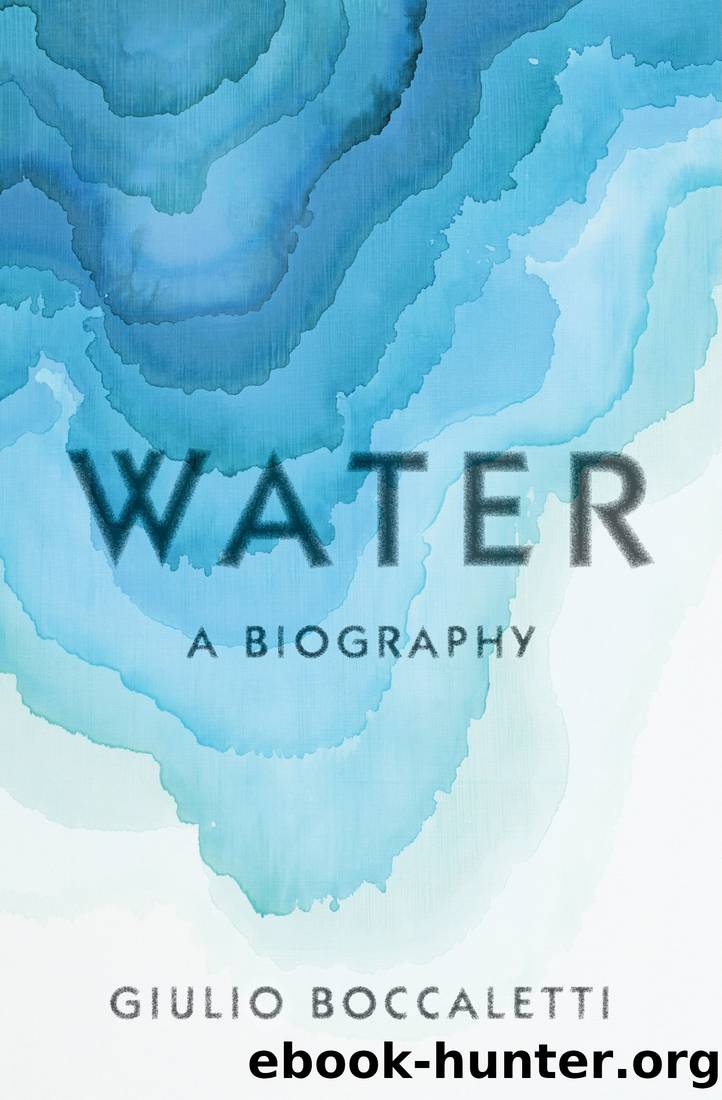Water: A Biography by Giulio Boccaletti

Author:Giulio Boccaletti [Boccaletti, Giulio]
Language: eng
Format: epub
Tags: science, Earth Sciences, Geography
ISBN: 9781524748234
Google: 1OY9EAAAQBAJ
Publisher: Knopf Doubleday Publishing Group
Published: 2021-11-15T23:47:01.699916+00:00
Fascism Is Born
Russia had produced real communism through the electrification of its rivers. But the transformation of Russia into the Soviet Union was not the only water-led response to the consequences of the First World War.
The disruption of international trade due to the Great War had been economically disastrous for an export-oriented, largely agrarian country like Italy. America was its principal trading partner, but it had embraced protectionism. Italian-American communities in the United States, previously buyers of Italian products, had developed their own production. Pasta exports, as one example, dropped by a factor of thirty between 1913 and 1924. During the war, Italyâs trade deficit grew. By the early 1920s Italy was importing twice as much food as it was exporting.
Trade was not its only problem. Before the war the United States had been a demographic valve for southern Europe. After the war, an increase in American nationalism led to immigration quotas. Only 10 percent of immigrants could come from southeast Europe, which eliminated a crucial outlet for rural, overpopulated Italian regions. To add to the demographic time bomb, more people faced fewer employment prospects. The war economy had pushed the emergent Italian manufacturing sector to unprecedented levels, but had also changed its structure, redirecting it towards higher productivity and away from mass employment.
The Italian population had turned politically more radical, as enthusiasm for the internationalism of Woodrow Wilsonâs League of Nations faded. Liberalization had struggled to provide the promised benefits, and socialism was spreading fast among the peasants of rural Italy. It was a combustible mix: international finance was applying pressure to increase profits by turning to a low-employment, high-productivity industrial sector, while a society under immense strain due to both chronic unemployment and increasing demands sought redistribution and state intervention. The unfortunate resolution of that tension ended up being fascism.
In October 1922, at a moment of particular difficulty for the Italian government, Benito Mussolini organized the infamous March on Rome. By then, he was the powerful leader of a movement that called itself the National Fascist Party. He threatened a siege of Rome unless he received a mandate to form a new government. The king, unwilling to test the militaryâs resolve to protect the capital, and frankly more fearful of a socialist revolution than of the fascist threat, invited Mussolini to come to Rome to do just that.
Mussolini, named after Benito Juárez, the mid-nineteenth-century Mexican president, was by formation a radical. His political education had been shaped by unionism, nationalism, and futurism. At a young age Mussolini became a prominent voice of radical socialism, but was expelled from the socialist party because of his interventionist stance during the First World War. By then, however, his ideas had already begun to evolve towards a form of ânational socialism.â He had collected around him the disenfranchised and those returning from the bloody experience of the First World War. Violence was his principal credo.
In Mussoliniâs own definition, fascism was born without a real doctrine. Its ideological roots were shallow, focused on half-baked ideas like the celebration of youth, nation, and imperial power.
Download
This site does not store any files on its server. We only index and link to content provided by other sites. Please contact the content providers to delete copyright contents if any and email us, we'll remove relevant links or contents immediately.
| Africa | Americas |
| Arctic & Antarctica | Asia |
| Australia & Oceania | Europe |
| Middle East | Russia |
| United States | World |
| Ancient Civilizations | Military |
| Historical Study & Educational Resources |
Machine Learning at Scale with H2O by Gregory Keys | David Whiting(4279)
Never by Ken Follett(3913)
Fairy Tale by Stephen King(3347)
Oathbringer (The Stormlight Archive, Book 3) by Brandon Sanderson(3099)
The Man Who Died Twice by Richard Osman(3053)
Will by Will Smith(2888)
Rationality by Steven Pinker(2336)
Can't Hurt Me: Master Your Mind and Defy the Odds - Clean Edition by David Goggins(2305)
The Dark Hours by Michael Connelly(2288)
Friends, Lovers, and the Big Terrible Thing by Matthew Perry(2204)
The Dawn of Everything: A New History of Humanity by David Graeber & David Wengrow(2177)
Principles for Dealing With the Changing World Order: Why Nations Succeed and Fail by Ray Dalio(2022)
HBR's 10 Must Reads 2022 by Harvard Business Review(1827)
A Short History of War by Jeremy Black(1825)
Go Tell the Bees That I Am Gone by Diana Gabaldon(1739)
A Game of Thrones (The Illustrated Edition) by George R. R. Martin(1690)
515945210 by Unknown(1650)
Kingdom of Ash by Maas Sarah J(1638)
443319537 by Unknown(1533)
